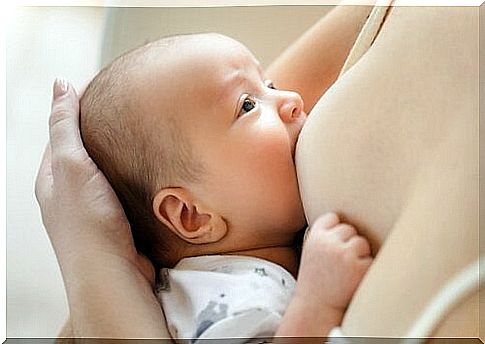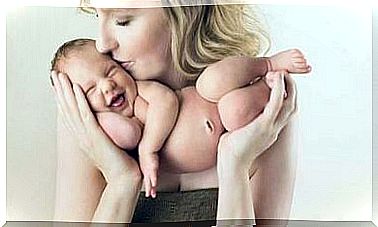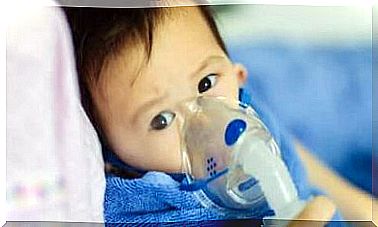You Should Breastfeed Your Baby – All The Benefits Of Breastfeeding

We’ll show you all the benefits of breastfeeding. Believe it, there is nothing better!
The human body is so wonderful that a mother can satisfy her baby’s hunger by feeding him instantly. This is not just practical knowledge, as more and more evidence of the health benefits of breastfeeding has accumulated over the past few decades.
The World Health Organization (WHO), backed up by hundreds of studies, can now confirm with certainty that breastfeeding reduces child mortality and brings health benefits that extend into adulthood.
In fact, the WHO recommends exclusive breastfeeding for the first six months of the baby’s life and then up to two years of age with proper nutrition as a supplement. The same thing is said by thousands of pediatricians around the world, mothers and grandmothers, who all know the benefits of breastfeeding . It is very unlikely that experience and science are both wrong.
In order to exclusively breastfeed for the first six months, the WHO and UNICEF recommend the following to mothers:
- You should breastfeed your baby right after it is born.
- Only breastfeed your baby, that is: give him only breast milk, no other food or drink, not even water.
- Silence whenever the child asks, whether during the day or at night.
- Don’t use bottles, rubber mouthpieces, or pacifiers.

Benefits of Breastfeeding for Both
Breastfeeding improves the mother’s health in the short and long term; it can help achieve the Millennium Development Goals to which many countries and associations have committed, especially those aimed at reducing child mortality and improving maternal health.
The benefits of breastfeeding aren’t just limited to numerical data and scientific evidence. They also include love and good moments with the mother and her child, as breastfeeding requires the mother to take a quiet break for herself and her child.
This time out helps to strengthen the bond between mother and child. Physical contact is important for the newborn as it helps them feel safe, warm, and loved.
Mothers who breastfeed their children have higher self-esteem and feel more connected to their baby.
However, it must be remembered that breastfeeding does not guarantee that the bond between mother and child will be a good one. Likewise, failing to breastfeed is not a guarantee of a bad relationship.
But when breastfeeding is enjoyed by both, it’s a thoroughly positive activity together.

Breast milk protects the child from:
- Infections of the ears
- Stomach infections
- diarrhea
- Respiratory diseases
- Atopic dermatitis
- asthma
- obesity
- diabetes
The main and most visible benefits of breastfeeding are the immediate improvement in health and its greater chance of survival. The incidence of diarrhea, respiratory infections, otitis media, and other infections, and related deaths, are significantly lower in children who were breastfed than in those who were not
-Pan American Health Organization-
Breast milk is enough
Breast milk shows various differences to normal milk. Colostrum, the first, thick, yellowish breast milk that is produced during pregnancy and directly after birth, gives your baby the best start in life.
Colostrum contains nutrients and antibodies that protect babies when they see the light of day.
For most babies, breast milk is easier to digest than regular milk. Babies’ stomachs take some time to get used to the digestion of the proteins in regular milk, which comes from cows.
Don’t worry about the amount of milk. Although the baby only consumes a small amount of colostrum each time they breastfeed, this amount is what the small stomach can absorb. A newborn’s stomach is small.
One of the biggest fears or worries a mother has is the amount of milk the baby is consuming. Remember: his stomach is small and he will eat as much as it takes to satisfy his hunger.
Pediatricians around the world recommend that babies only receive breast milk during the first six months of life. This means that you shouldn’t give your baby any other solid or liquid food during this time – not even water.
Not everything is pink
Support for the mother is essential according to the WHO. Breastfeeding has to be learned first and many mothers have problems at first. Pain in the nipples is common, as is the fear that the milk will not be enough for the child.
Remember that there are health centers to help you educate you about the benefits of breastfeeding and give you tips.
Thanks to an initiative by WHO and UNICEF, there are now more than 20,000 “child-friendly” centers in 152 countries. These provide support and improve the care and care that mothers and newborns receive.









